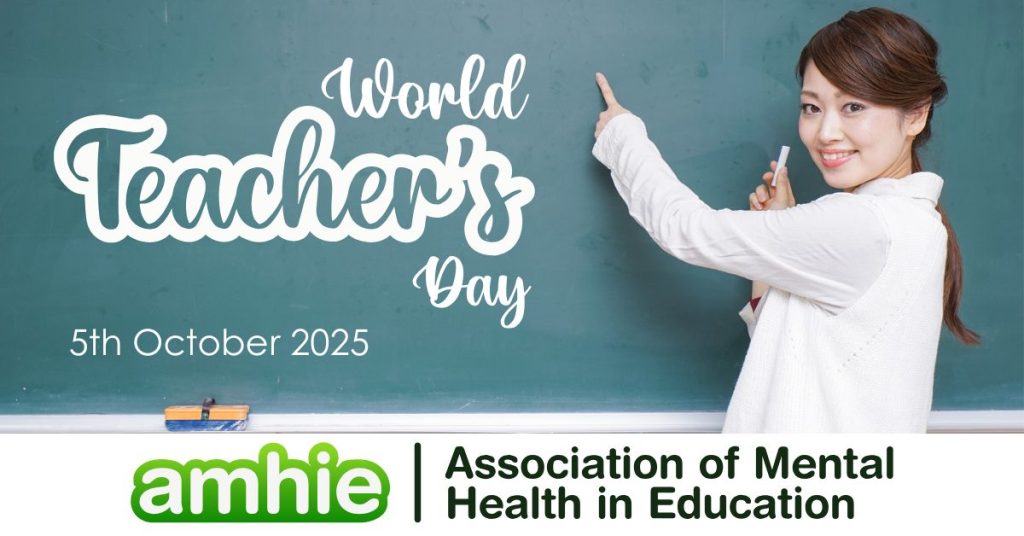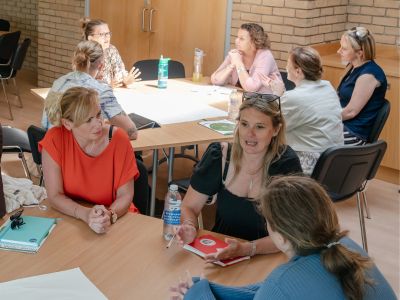
This year, World Teachers’ Day celebrations will centre on the theme “Recasting teaching as a collaborative profession”
“Teachers play vital roles in education systems, driving learning, inclusion, and innovation in schools and societies. Yet many work without collaborative structures to support their pedagogy, agency, professionalism or well-being. In many systems, the profession remains marked by isolation, fragmented structures and limited opportunities to build networks with peers, mentors and school leaders, affecting both educational quality and teacher retention.
This year, World Teachers’ Day celebrations will centre on the theme “Recasting teaching as a collaborative profession,” highlighting the transformative potential of collaboration for teachers, schools and education systems. Reframing teaching as inherently collaborative – supported by policies, practices, and environments that value mutual support, shared expertise, and joint responsibility – is essential to strengthen teaching, learning, and teachers’ professional fulfilment.”
Recasting Teaching as a Collaborative Profession in UK Schools
This World Teachers’ Day, we celebrate the vital role educators play in shaping future generations, with a poignant theme: “Recasting teaching as a collaborative profession.” In an increasingly complex educational landscape, the power of collaboration – both within and beyond school gates – has never been more critical, especially when addressing the growing challenges of student mental health and behaviour. For our schools, fostering a truly collaborative environment holds the key to reducing the need for external referrals and unlocking powerful early intervention opportunities.
We are seeing a noticeable rise in mental health concerns and complex behavioural challenges within schools, in part to the challenges that children and young people are facing post pandemic. Teachers on the front lines are frequently the first to identify these issues, often working independently and isolated from larger support systems. This is why creating a school culture of collaboration and unity can help to speed up classroom support and reduce reliance on stretched external services.
Collaboration Within the School Community:
True collaboration starts within the school itself. This means moving beyond occasional departmental meetings to cultivate a culture of shared responsibility and continuous professional dialogue.
- Peer Support Networks: Teachers facing similar mental health or behavioural challenges with students can benefit immensely from regular peer-to-peer discussions. Sharing strategies, resources, and even frustrations can build confidence and generate innovative solutions. Imagine a Year 5 teacher struggling with a student’s escalating anxiety being able to readily connect with a Year 6 colleague who successfully navigated a similar situation the previous year.
- Multi-Disciplinary Team Meetings: Bringing together teachers, teaching assistants, SENCOs, pastoral leads, and school counsellors (where available) in regular, structured meetings is crucial. This integrated approach allows for a holistic understanding of a student’s needs, drawing on diverse perspectives and expertise. For instance, a teaching assistant might observe a specific trigger for a student’s outbursts that a classroom teacher, focused on instruction, might miss.
- Shared Professional Development: Collaborative professional development sessions focused on understanding mental health conditions, de-escalation techniques, and trauma-informed practices can upskill the entire staff. This ensures a consistent approach across the school, rather than relying on individual teachers to seek out isolated training.
Collaboration Beyond the School Gates:
The most impactful collaboration extends beyond the school, weaving a network of support for students and families.
- Partnerships with Parents and Carers: Parents are a child’s first educators and hold invaluable insights into their child’s emotional world. Collaborative communication, regular check-ins, and joint problem-solving with parents can often prevent issues from escalating. Instead of simply informing parents of a problem, schools can engage them as active partners in developing solutions.
- Local Authority and Health Services Integration: Strong links with local CAMHS (Child and Adolescent Mental Health Services), educational psychologists, social workers, and other community mental health initiatives are paramount. While referrals may still be necessary for complex cases, effective collaboration can ensure these are timely and appropriate, informed by a detailed understanding of the student’s history within the school setting. Furthermore, collaborative training and information sharing can help school staff understand when and how to access these services most effectively.
- Cluster Groups and Inter-School Networks: Schools within a geographical area or multi-academy trust can form collaborative networks to share best practices, resources, and even specialist staff. If one school has developed a particularly effective early intervention programme for anxiety, for example, this knowledge can be readily shared and adapted by neighbouring schools, leading to system-wide improvements.
Reducing Referrals and Fostering Early Intervention:
The ultimate goal of this collaborative shift is to empower schools to provide more effective early interventions, thereby reducing the burden on external services. When teachers feel supported, confident, and equipped with a diverse toolkit of strategies, they are better able to:
- Identify issues earlier: A teacher who feels part of a supportive team is more likely to raise concerns about a student’s well-being promptly, knowing they will receive support rather than being left to manage alone.
- Implement targeted strategies: Collaborative discussions can lead to bespoke, classroom-based interventions tailored to individual student needs, often preventing the need for external specialist input. This might involve adapting curriculum, implementing specific behaviour plans, or utilising peer mentoring within the school.
- Build a resilient school environment: A school culture where mental health is openly discussed, and support is readily available, fosters a sense of psychological safety for both students and staff.
This World Teachers’ Day, let us commit to truly recasting teaching as a collaborative profession. By dismantling silos and building bridges of communication and shared expertise, UK schools can create powerful ecosystems of support, ensuring that every child receives the early, holistic interventions they need to thrive.
Here’s to a future where every teacher feels empowered by the strength of their collaborative community.
Join a trusted community with AMHIE Membership

Don’t navigate mental health challenges alone! Joining AMHIE as a member instantly connects you to our vital community, offering a powerful return on your time. While you get essential, compliant updates on DfE policy to Reduce Risk and Stress, the true value lies in this trusted peer network. Eliminate professional isolation by tapping into Expert Support and shared insights from colleagues, gaining the Clarity and Direction needed for best practice. This free access also delivers news and evidence-based resources, ensuring you stay ahead of the curve with confidence, supported by your peers.
Ready to connect with a supportive community and stay ahead of policy? Get immediate access to guidance and peer support—sign up for your AMHIE membership today!
